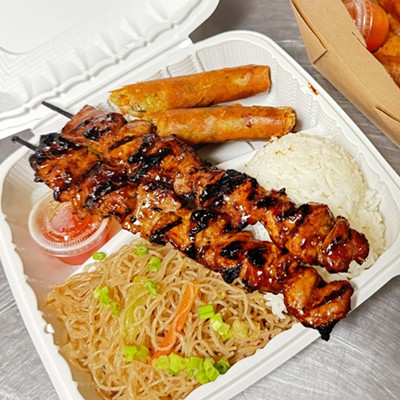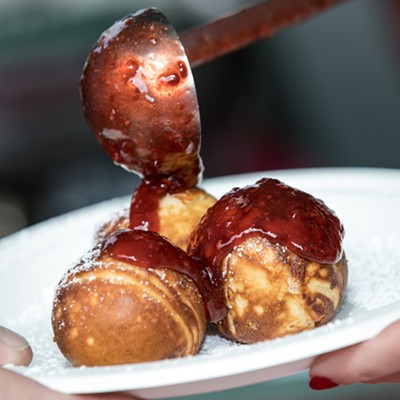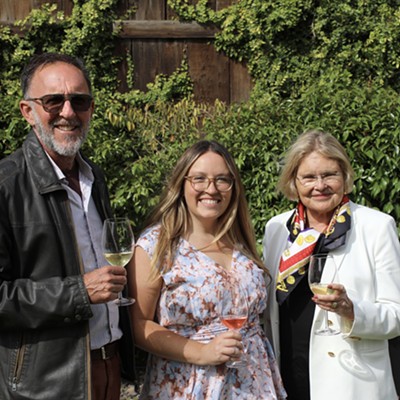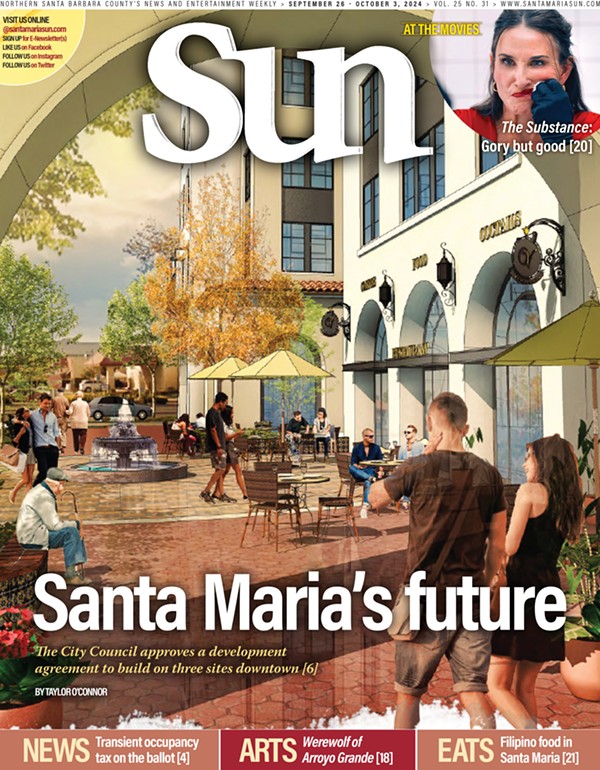With great grapes, come great expectations. And those high expectations will be met with both of Turning Tide’s two newest wines, created from locally sourced grapes—picpoul and sauvignon blanc—picked in October 2021.

The back label of the wines—both of which Turning Tide bottled during the spring of 2022—describes the unique, atmospheric conditions that lended a hand in maintaining Turning Tide’s signature coastal flavor.
“During the fall of 2020, multiple vineyards across the Central Coast were blanketed by fog,” the label reads.
This cool marine layer allowed Turning Tide’s grapes to remain on the vine until late fall, resulting in “a slow accumulation of sugar while reaching full ripeness and retaining high natural acidity.”
Said accumulation also results in low alcohol levels, which Turning Tide founder Alisa Jacobson believes allow for various nuances, aromas, and flavors—each of which could easily be overshadowed by higher alcohol levels—to take center stage while sipping her organic wines.
Jacobson hopes her informative, story-driven labels—made with recycled paper and compostable ink—will potentially attract loyal patrons of competing brands to “try something different, something with a little soul behind it, try something with a story behind it,” she said.
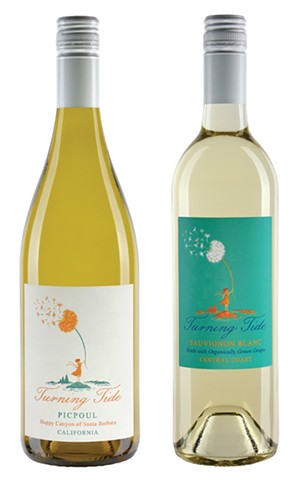
Of her brand’s two latest wines, Jacobson’s personal favorite to drink is the picpoul, which was sourced from grapes grown in the rocky soils of Happy Canyon, one of Santa Barbara County’s most popular AVAs.
According to its label, Turning Tide’s picpoul was fermented in stainless steel barrels and aged with the sur lie method, meaning it’s aged in contact with its lees, which are dead yeast and other sediment. The final product is described as teeming with natural acidity, richness, and subtle hints of pear, peach, and other flavors.

For an organic wine, Turning Tide’s picpoul is reasonably priced at $22.99 a bottle. Jacobson’s newly bottled sauv blanc is even less expensive, at $16.99.
“I’m not making wine more expensive just because it’s organic,” Jacobson said. “That’s part of sustainability, you don’t want to be over-the-top expensive for no reason. … It has to be economically viable if you’re being sustainable.”
Between commuting from her home in Shell Beach to her vineyard property in Santa Ynez, and taking on a handful of environmentalism-based roles outside her job as a full-time winemaker, Jacobson doesn’t have time to sleep, she half-joked.
Besides Turning Tide’s new bottlings, one of Jacobson’s new favorite projects she found extra time to work on recently was outlining “The Six Pillars of Sustainability,” which are available to view on her brand’s website.

While other organizations have identified tenets of sustainability in similar formats, Jacobson’s unique list applies directly to her environmentally conscious winemaking and farming practices.
The six pillars are: water (knowing the source and how to protect its purity); energy (keeping it clean and efficient and working to reduce use); waste reduction (finding ways to reuse of reincorporate); social equality (being committed to the pursuit of social justice for all); climate pro-action (capturing carbon and working toward being carbon negative); and pesticide and herbicide reduction (mitigating the harmful side effects of a carbon footprint).

By identifying these pillars and providing specific information on her wines and how they were made, Jacobson aims to make sure “we’re educating the consumer about what all this stuff means,” she explained, as the term “sustainability” could seem ambiguous without details on the actual efforts at work.
One of these details, for example, is that Turning Tide wines use grapes from several different vineyards, but each vineyard is located in areas with either ample rainfall or groundwater. This discipline comes in handy especially during drought years, including 2021, according to Jacobson’s recent wine labels.
To sum up her outlook in a nutshell, Jacobson described her philosophy as “farming in a way that doesn’t harm the earth.”
Bring Arts Editor Caleb Wiseblood back down to Earth at [email protected].






